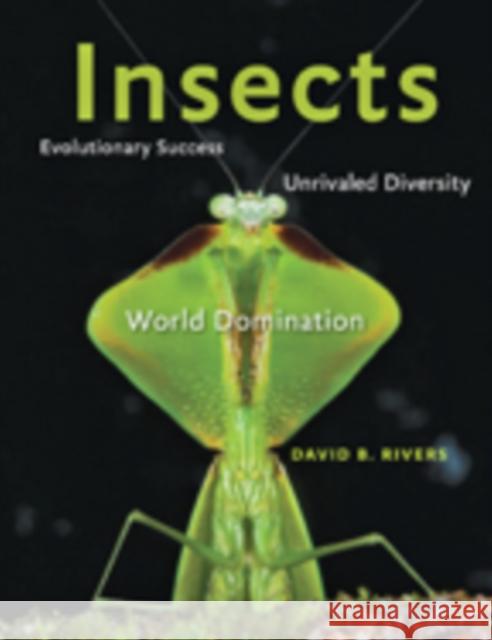Insects: Evolutionary Success, Unrivaled Diversity, and World Domination » książka
Insects: Evolutionary Success, Unrivaled Diversity, and World Domination
ISBN-13: 9781421421704 / Angielski / Twarda / 2017 / 488 str.
Too often, David B. Rivers argues, entomology is taught using a dry taxonomic approach that the average biology major finds both dull and painful. Students should, Rivers believes, become fascinated with insects by the end of a course that examines more than 75% of all animal diversity on Earth--around two quintillion individual insects. With refreshing energy, Insects tells the gripping story of how and why this six-legged life form has been so remarkably successful--and is poised to take over the world.Designed as an introduction to the intriguing world of insect biology, this book examines familiar entomological topics in nontraditional ways by placing an emphasis on student engagement through references to popular culture. Several chapters provide in-depth coverage of topics that are not typical for entomology textbooks, including the impact of insects on the human condition, why insects are phat but not fat, the sex lives of insects, forensic entomology, and the threats that some insects pose to humans. Each chapter presents clear and concise key concepts, chapter reviews, review questions following Bloom's taxonomy of learning, web links to videos and other resources, and breakout boxes (called Fly Spots) to capture student interest with unique and entertaining topics related to entomology. Focusing on both traditional and nontraditional aspects of insect biology and packed with extensive learning resources, Insects covers a wide range of topics suitable for life science majors as well as non-science students, including: - the positive and negative influences of insects on everyday human life- insect abundance- insect classification (here presented in the context of social media)- insect feeding, communication, defense, and sex- how insects are responding to climate change- forensic entomology- how insects can be used as weapons of war- how insects relate to national security- why insects have wings- how to read pesticide labels- why beetles would have caused Noah many troubles











